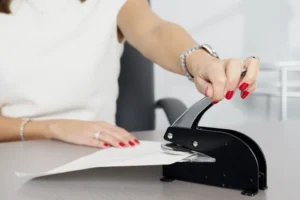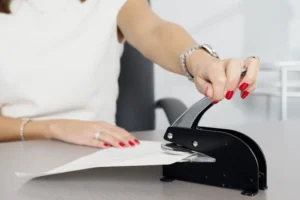In today’s fast-paced world, ensuring the authenticity and legality of important documents is crucial. Whether you are dealing with real estate transactions, estate planning, or personal legal matters such as a will and testament or a statutory declaration, having a certified notary public is essential. A notary public plays a fundamental role in preventing fraud, verifying identities, and ensuring that the parties involved in legal and financial transactions are indeed who they claim to be. This article provides an in-depth look at the notarial process, the types of documents that may require notarization, and how to locate a notary public near you. We will explore the various services offered by notarized public notaries, discuss the responsibilities and requirements of these professionals, and guide you through what to expect during a notarization appointment. For residents in areas such as Brampton, downtown Toronto, or Etobicoke, where accessibility and prompt service are key, finding a reliable notary public who meets your needs and budget is of paramount importance. By demystifying the process and discussing factors such as fees, criminal record checks, and certification requirements, this article aims to make the search for a notary public straightforward and efficient. In the following sections, you will gain clarity on what a notary public does, why notarization is vital, and how to select the right professional to handle your critical documents. Now, let us dive deeper into the role and significance of a notarized public notary.
Understanding the Role of a Notarized Public Notary
Understanding the fundamental role of a notary public is key to appreciating how these professionals contribute to legal and financial security.
What Is a Notary Public and What Do They Do?
A notary public is an official appointed by the state to serve as an impartial witness during the signing of important documents. Their primary duty is to verify the identities of the signatories, ensuring that document signings are carried out without coercion and that the documents are executed voluntarily. They use their official seal or stamp to authenticate signatures and certify that all legal formalities have been met. This notarial act is crucial when executing deeds, wills and testaments, affidavits, and other legal instruments. A notary public does not provide legal advice; instead, they focus on preventing fraud and verifying that all parties have willingly consented to the terms documented.
Why You Might Need Notarized Public Notary Services
You might require the services of a notarized public notary for a variety of important transactions. For instance, when you are buying or selling real estate, the deed must be notarized to provide a layer of trust and to prevent disputes. Other instances include executing a will or powers of attorney, signing a statutory declaration, or certifying copies of essential documents such as a birth certificate or passport. Additionally, notarization is often needed for documents related to immigration, business contracts, and various personal agreements. Not only does notarization help in establishing the authenticity of a document, but it also serves as a deterrent against fraud, ensuring that documents are legally binding and enforceable in court.
Types of Documents That Often Require a Notarized Public Notary
A wide array of documents may require notarization depending on their importance and potential legal implications. Common examples include real estate deeds, wills and testaments, statutory declarations, contracts, powers of attorney, and affidavits. Moreover, documents used in business transactions, such as bill of sale agreements and employment contracts, often demand a notary’s certification to assure their legitimacy. Notarization assures that documents are free from forgery and that the signatories understand the obligations they are undertaking. This process is particularly crucial when the documents will be used in legal proceedings or when they cross jurisdictional boundaries.
The Importance of a Notarized Public Notary in Preventing Fraud
The prevention of fraud is one of the most critical roles of a notary public. By acting as an impartial witness and verifying identity through credible identification documents, a notary public provides legal certainty and minimizes the risks associated with fraudulent activities. In transactions such as property transfers, an improperly notarized document may expose parties to scams or legal challenges. Therefore, the notary’s involvement protects all parties by ensuring that documents are executed correctly, with every necessary precaution taken to confirm the validity of the signatures. This system of checks and balances is fundamental to the trust placed in certified notary services.
Key Responsibilities of a Notarized Public Notary
The primary responsibilities of a notary public extend beyond simply stamping or sealing a document. They are responsible for maintaining accurate records of their notarial acts, which may serve as evidence in legal proceedings if disputes arise later. This includes logging details of every notarization, such as the date, time, type of document, and the identities of the parties involved. Additionally, notaries must remain updated with state-specific laws and regulations to ensure compliance. They must also refuse to notarize documents if they suspect any form of coercion, forgery, or if the signers fail to appear in person with proper identification. This ethical obligation is paramount to upholding the integrity of the notarization process.
How to Locate a ‘Notary Public Near Me’

Finding a notary public in your local area can be straightforward if you know where to look. Today, many residents rely on various methods to locate a qualified notary, ensuring the timely execution of legal documents.
Using Online Search Engines to Find a ‘Notary Public Newr Me’
The internet has revolutionized how we locate essential services. One effective method for finding a notary public near you is to use online search engines. By entering specific phrases such as “notary public near me” or “certified notary public in [city name],” you can quickly access a list of local notaries. Many online directories and review platforms provide detailed information, including operating hours, contact details, and customer reviews, which can help in evaluating the reliability and quality of the service provided.
Checking With Local Banks and Credit Unions for Notary Services
Many local banks and credit unions offer free notary services to their customers as a convenience. This is customary in regions where financial institutions have a longstanding tradition of assisting with governmental and legal formalities. When you visit your bank or credit union branch, ask if they provide notary services. Notarizations performed at these institutions are typically conducted by employees who have been trained and certified to perform these duties. This can be particularly cost-effective since many banks offer this service free of charge for their account holders.
Finding a ‘Notary Public Near Me’ at Libraries and Government Offices
Public libraries and government offices often have notary public services available to the community. These services are generally provided at a low cost or even free, making them an affordable option for individuals who might otherwise be hesitant due to cost considerations. Community centers and local municipal buildings sometimes host regularly scheduled notary public sessions. Checking local government websites or calling your nearby library can provide exact details and appointment schedules for notarization services.
Utilizing Online Notary Directories and Locators
There are specialized online directories that help locate notaries. Websites dedicated solely to listing notary services allow users to filter results by proximity, operating hours, and service costs. These online locators are designed to simplify the process of finding a certified professional quickly. They often include additional information on electronic notarization options, which may be appealing if you have a busy schedule or require after-hours service.
Asking for Recommendations From Professionals or Friends
Sometimes the best way to find a reliable notary public is through word-of-mouth recommendations. Professionals such as your lawyer, conveyancer, or even friends and family members who have previously used notary services can point you in the right direction. Recommendations not only help in finding a qualified notary but also provide insights into their responsiveness, professionalism, and overall cost-effectiveness. Personal testimonials can often highlight the quality of customer service, which is critical when dealing with time-sensitive legal documents.
Exploring Different Types of ‘Notarized Public Notary‘ Services
Notarization services are not one-size-fits-all; there are different types of notarized public notary services designed to cater to diverse needs. The method of notarization can influence the speed, convenience, and overall experience of the process.
Traditional in-Person Notarization With a ‘Notarized Public Notary‘
Traditional in-person notarization involves meeting directly with a notary public at a designated office or branch. This method offers the highest level of personal interaction, making it easier to clarify any questions on the spot. During an in-person appointment, the notary checks your identification, reviews the document, and witnesses your signature. This method is particularly beneficial when there is a need for extra reassurance about the authenticity of sensitive documents. It is often used for complex transactions where precision and a physical audit trail are required.
Mobile ‘Notarized Public Notary‘ Services That Come to You
For those with busy schedules or limited mobility, mobile notary services provide the convenience of having a notary come to your location. Mobile notaries travel to homes, offices, or any mutually agreed-upon location to perform notarizations. This service is especially useful during emergencies or in remote locations where access to traditional notary offices might be limited. Though mobile services may incur additional fees due to travel expenses, the convenience they offer can be an invaluable benefit. This option is ideal for urgent situations such as real estate closings or when multiple documents need to be notarized simultaneously.
Remote Online Notarization (RON) With a ‘Notarized Public Notary‘
Advancements in technology have allowed for Remote Online Notarization (RON), which enables document notarization via an online platform. RON services use secure video conferencing tools that comply with state regulations to perform notarizations entirely online. During a RON, clients verify their identities through a multi-step authentication process, and remote notaries witness and record the signing process digitally. This method is gaining popularity due to its efficiency, particularly in situations where meeting in person is impractical. The digital record provided by RON can be easily stored, shared, and retrieved, reducing the physical paperwork burden.
Understanding eNotarization and in-Person Electronic Notarizations (IPEN)
eNotarization and in-person electronic notarizations (IPEN) combine the convenience of digital technology with the integrity of traditional notarization practices. In these methods, documents are notarized electronically using digital signatures and encrypted stamps. IPEN, for example, allows a notary to perform an electronic notarization while physically present with the client. This process ensures that the efficiency of electronic notarization does not compromise the authenticity and legal integrity of the document. Many states have now enacted laws to recognize these forms of notarization as legally valid, which provides additional flexibility for businesses and individuals needing secure and expedited document processing.
What to Expect During Your Appointment With a ‘Notary Pubilc Near Ne’

When you have scheduled an appointment with a notary public, it is essential to be fully prepared. Understanding the process and what you can expect during your session can help make the experience smooth and stress-free.
Preparing Your Documents Before Meeting the ‘Notary Pubilc Near Ne’
Before your appointment, ensure that all required documents are complete, error-free, and organized. This includes making copies of any documents that need to be notarized, as some institutions or agencies require recipients to have both the original and certified copies. It is also advisable to review the document for any blank spaces or incomplete information. Notaries will not certify documents with missing details, as this increases the risk of fraudulent alterations later on. Preparing your documents ensures that the notarization process is efficient and that you do not have to reschedule due to incomplete paperwork.
Necessary Identification to Bring for Notarization
A critical component of the notarization process is verifying the signer’s identity. You must bring a government-issued photo identification, such as a driver’s license or passport. The identification provided must be current and valid. Notaries are legally bound to check this form of identification and may refuse to proceed if you fail to provide adequate proof. The rigorous process of identification helps to protect all parties involved by ensuring that the signatories are indeed who they claim to be. In some cases, additional identification or documents may be required, so it’s best to confirm the specific requirements with your notary public before your appointment.
The Notarization Process Step-by-Step
During your appointment, the process begins with the notary reviewing your documents and your identification. The notary’s first step is to confirm that you understand the content and purpose of the document you are signing. Following this, you are required to sign the document in the presence of the notary. The notary then uses an official seal or stamp to certify the document. In cases where witnesses are required, the notary may also document the presence and identities of these individuals. The entire process is meticulously recorded in the notary’s official log, which might be referenced in the future if any legal disputes arise. This detailed process is designed to uphold the document‘s integrity and ensure compliance with legal standards.
Understanding Notarial Certificates and Their Purpose
Once the document is signed and notarized, the notary public provides a notarial certificate, which serves as a formal attestation that the document was executed properly. This certificate includes important details such as the date, location, and identification of the parties involved. Moreover, the certificate is an independent record confirming the validity of the notarial act. It plays a crucial role in any future legal proceedings where the authenticity of the document might be challenged. Understanding the purpose of the notarial certificate reinforces the importance of obtaining professional and accurate notarization services.
Questions to Ask Your ‘Notary Pubilc Near Ne’
During your appointment, it is beneficial to ask questions that can clarify any uncertainties about the process and your responsibilities. Questions might include inquiries about the fees involved, how long the notarization process will take, whether the document you are signing meets the required legal standards, and what additional steps might be necessary if modifications are needed in the future. Asking these questions can help ensure that you leave the appointment with a complete understanding of the notarization’s implications for your document. It also helps build trust in the notary public’s professionalism and thoroughness.
Considerations When Choosing a ‘Notarized Public Notary‘
Choosing the right notary public is vital for ensuring that your documents are handled professionally and accurately. There are several factors to consider to ensure that you select a notary who meets your needs.
Verifying Credentials and Qualifications of a ‘Notarized Public Notary‘
When choosing a notary, verifying their credentials is essential. A qualified notary should possess a valid license, current certification, and maintain an active record free from disciplinary issues. Many notaries are proud members of professional organizations such as the Law Society or a local notary association, which can serve as an extra layer of verification regarding their professional standards. It is advisable to check for reviews or endorsements from previous clients and to confirm that the notary is recognized by the state authority. This step ensures that the notary you select adheres to the legal and ethical standards necessary for proper notarization, thereby protecting you from future complications.
Considering Specialization and Expertise if Needed
Depending on your particular situation, you might require a notary public with specialized expertise. For example, if you need to notarize documents related to real estate transactions, estate planning, or immigration, finding a notary with extensive experience in these areas can be beneficial. Specialized notaries may charge a premium for their expertise, but the additional investment could prove valuable for complex or high-stake transactions. Comparing the notary’s specialization in relation to your document needs is an important consideration that can impact the quality and efficiency of the notarial service.
Evaluating Availability, Accessibility, and Location
When urgency is a factor, consider the notary public’s availability and location. A notary who offers mobile services or online notarization can be a significant advantage for those with tight schedules or when immediate document processing is required. Proximity is especially important when physical presence is required; hence, checking for a “notary public near me” using online locators or recommendations can streamline the process. It is important to assess the notary’s operating hours, as some providers may offer extended or after-hours services that can cater to your specific needs.
Understanding Fees and Potential Additional Costs
Fees for notary services can vary based on the complexity of the document, travel requirements, and whether additional services such as mobile visits are requested. Some notaries may advertise low base rates while charging extra for services like travel or rush notarizations. It is advisable to request a clear breakdown of all potential fees upfront. Some financial institutions offer free services to account holders, so exploring these options may help you manage costs. Understanding fee structures before engaging a notary ensures that there are no unexpected expenses later in the process.
Checking Reviews and Reputation of the ‘Notarized Public Notary‘
Finally, checking reviews and the overall reputation of a notary public can provide valuable insight into their reliability and service quality. Online review platforms, testimonials, and word-of-mouth recommendations are all useful tools to gauge customer satisfaction. A notary with a strong positive reputation is more likely to offer services that are efficient, professional, and secure. This due diligence prevents potential issues such as delays, errors in document handling, or even fraudulent practices, thereby safeguarding your interests.
Common Questions About Finding and Using a ‘Notary Pubilc Near Ne’

Before selecting a notary public, several common questions and concerns may arise. Addressing these questions helps clarify the process and ensures that you make an informed decision.
Can a ‘Notary Pubilc Near Ne’ Refuse to Notarize a Document?
Yes, a notary public has the authority to refuse to notarize a document if the document appears incomplete, altered, or if the signer fails to provide proper identification. The notary is legally bound to follow state laws and ethical guidelines, which include the duty to ensure that all parties understand the document and sign without coercion. Furthermore, notaries may refuse service if there is suspicion of fraud or if the document falls outside their scope of service.
Are There Free or Low-Cost ‘Notary Pubilc Near Ne’ Options?
Free or low-cost notary services are often available at local banks, credit unions, and government offices. These institutions typically offer notarization as a complimentary service for their customers or members. However, the availability of these services may vary by region and institution. It is advisable to inquire with your bank or local government office about their notary services before seeking private options. This can help manage costs, especially for routine notarizations.
How Long Does a Notarization Appointment Typically Take?
The duration of a notarization appointment can vary depending on the complexity of the document and the number of documents to be notarized. Typically, a standard notarization session may take between 10 to 30 minutes. For more complex transactions, such as those involving multiple documents or additional verification requirements, it may take longer. It is important to allocate sufficient time for the appointment, particularly if you have multiple documents that require notarization.
What if My Document Requires Witnesses?
Some documents require the presence of witnesses in addition to notarization. In these cases, the notary public may need to oversee the entire process, ensuring that the witnesses sign the document in their presence. If witnesses are required, it is essential to inform the notary in advance so they can provide any necessary instructions or accommodate the additional parties. Confirming witness requirements before the appointment can help avoid delays and ensure that all legal formalities are properly fulfilled.
Is Online Notarization Legally Accepted?
Online notarization, including Remote Online Notarization (RON), is legally accepted in many jurisdictions. However, rules surrounding online notarization can differ from state to state. It is important to verify that the digital notarization process complies with local laws and that the notary public is authorized to perform online notarizations. The legal validity of eNotarization has been upheld in numerous instances, making it a viable alternative for individuals who require the convenience of notarization without physically visiting an office.
Frequently Asked Questions
Q: What identification do I need to provide for notarization? A: You must provide a government-issued photo ID such as a driver’s license or passport. In some cases, additional identification may be required. This ensures that the notary public can verify your identity and maintain the integrity of the notarization process.
Q: Can I notarize copies of important documents? A: Yes, many notaries are authorized to certify copies of important documents, provided that the original document is available for verification. This is commonly done for documents like academic certificates, legal records, and other personal documents. Always confirm with your notary public regarding the specific requirements for certified copies.
Q: How do remote online notarizations work? A: Remote online notarizations use secure video conferencing technology to verify your identity and witness your signature electronically. The process involves multi-factor authentication and secure digital records. Once completed, the notary provides a digitally notarized certificate that is legally recognized in jurisdictions that permit RON.
Q: What should I do if my document is altered after notarization? A: Altering a notarized document invalidates the notarization and may lead to legal consequences. If any changes are necessary, a new notarization will be required. It is essential to review the document carefully before signing to ensure all information is accurate and complete.
Q: How can I find the best notary public near me? A: You can start by using online search engines, checking with local banks and government offices, and asking for recommendations from professionals or friends. Reading online reviews and verifying the notary’s credentials will help you identify a reliable and efficient service provider.
Q: Are mobile notary services more expensive than in-person ones? A: Mobile notary services typically charge additional fees for travel. However, the convenience of having the notary come to your location can be well worth the extra cost, especially in urgent or complex situations where time and accessibility are critical factors.
Q: What comes after the notarization process? A: After notarization, you receive a notarized certificate attached to your document, which confirms that the signatory’s identity has been verified, and the document was executed in compliance with legal requirements. This certificate can be used in legal proceedings to confirm the authenticity of your document.
Final Thoughts

In summary, a notary public plays a vital role in ensuring the legitimacy of critical documents and safeguarding against fraud. Knowing what to expect during the notarization process, how to prepare your documents, and understanding the different methods of notarization is essential for a smooth experience. It is equally important to select a reputable notary public by verifying credentials, evaluating fees, and comparing available services. As legal and financial transactions become increasingly complex, relying on a certified notary public ensures that your documents are handled with precision and care. With the information provided, individuals can confidently navigate the notarial landscape and make informed decisions when in need of notarized services.
Frequently Asked Questions
Q: What types of documents typically require notarization? A: Documents such as real estate deeds, wills and testaments, statutory declarations, contracts, powers of attorney, and affidavits often require notarization. Additionally, certain business documents and immigration papers also need to be notarized to ensure they are legally binding and to prevent fraud. The notarization process verifies the identity of the signers and safeguards the integrity of the document.
Q: Can I use online notary services for all legal documents? A: While online notarization services are legally accepted in many jurisdictions, not every document qualifies for remote online notarization. Some legal documents, especially those that require physical presence for additional security measures, may still necessitate in-person notarization. Always verify with local regulations and consult a knowledgeable professional to determine the most appropriate service for your document.
Q: How can I ensure that the notary public I choose is reputable? A: To ensure you choose a reputable notary, verify their credentials, check for positive customer reviews, and seek recommendations from trusted professionals like lawyers or bankers. Additionally, confirm that the notary is properly certified and in good standing with the relevant governmental authorities. This diligence helps guarantee a quality service that upholds legal standards.
Q: What should I do if I need a document notarized outside regular business hours? A: If you require notarization outside normal business hours, you can explore mobile notary services or remote online notarization options. Many providers offer extended hours and even emergency services to accommodate urgent needs. It is advisable to research and contact these services in advance to confirm availability and any potential additional fees.
Q: Is notarization expensive, and what should I expect to pay? A: The cost of notarization can vary significantly depending on factors such as location, document complexity, and the need for mobile services. In many cases, banks and credit unions offer free notary services to their customers, while private notaries may charge a fee per notarized document. Always ask for a clear breakdown of fees before proceeding to avoid unexpected charges.
Q: How does a notary public maintain neutrality during the document signing process? A: A notary public is required to act as an impartial witness and does not provide legal advice or influence the decision-making of the signers. Their role is solely to verify identity, ensure that documents are signed voluntarily, and to record the notarization process accurately. This impartiality is essential in preserving the integrity of the notarized document and ensuring that all parties are protected.
Q: Can notarization be used to help with estate planning and the execution of a will? A: Absolutely. Notarization is a critical part of estate planning, as it helps to confirm the authenticity of a will and other estate-related documents such as powers of attorney. This added layer of verification can minimize disputes and legal challenges, ensuring that the wishes of the individual are executed correctly. Notaries also help in witnessing signatures which is fundamental to many estate planning documents.
| Notary Service Method | Key Feature | Benefit | Typical Use Case |
|---|---|---|---|
| Traditional In-Person | Face-to-face verification | Maximum personal interaction and accuracy | Real estate transactions, wills, affidavits |
| Mobile Notary | Notary visits your location | Convenience for busy or remote clients | Urgent document signing, home-based services |
| Remote Online Notarization (RON) | Video conferencing with secure verification | Efficiency and accessibility | Business contracts, digital documentation |
| Electronic/In-Person Electronic | Digital notarization with electronic tools | Fast and secure documentation | High-volume notarizations, travel document processing |
Before using these services, it is important to evaluate your specific needs and choose a method that offers the best balance of convenience, cost, and legal validity for your documents. The table above summarizes the key features and benefits of each notary service method, helping you make an informed decision based on your circumstances.
By taking the time to understand what each type of notary service offers, you can ensure that your documents are processed correctly, legally, and in a timely manner. Having the right information empowers you to select a certified and reliable notary public, which ultimately protects your legal interests and provides peace of mind during critical transactions.








